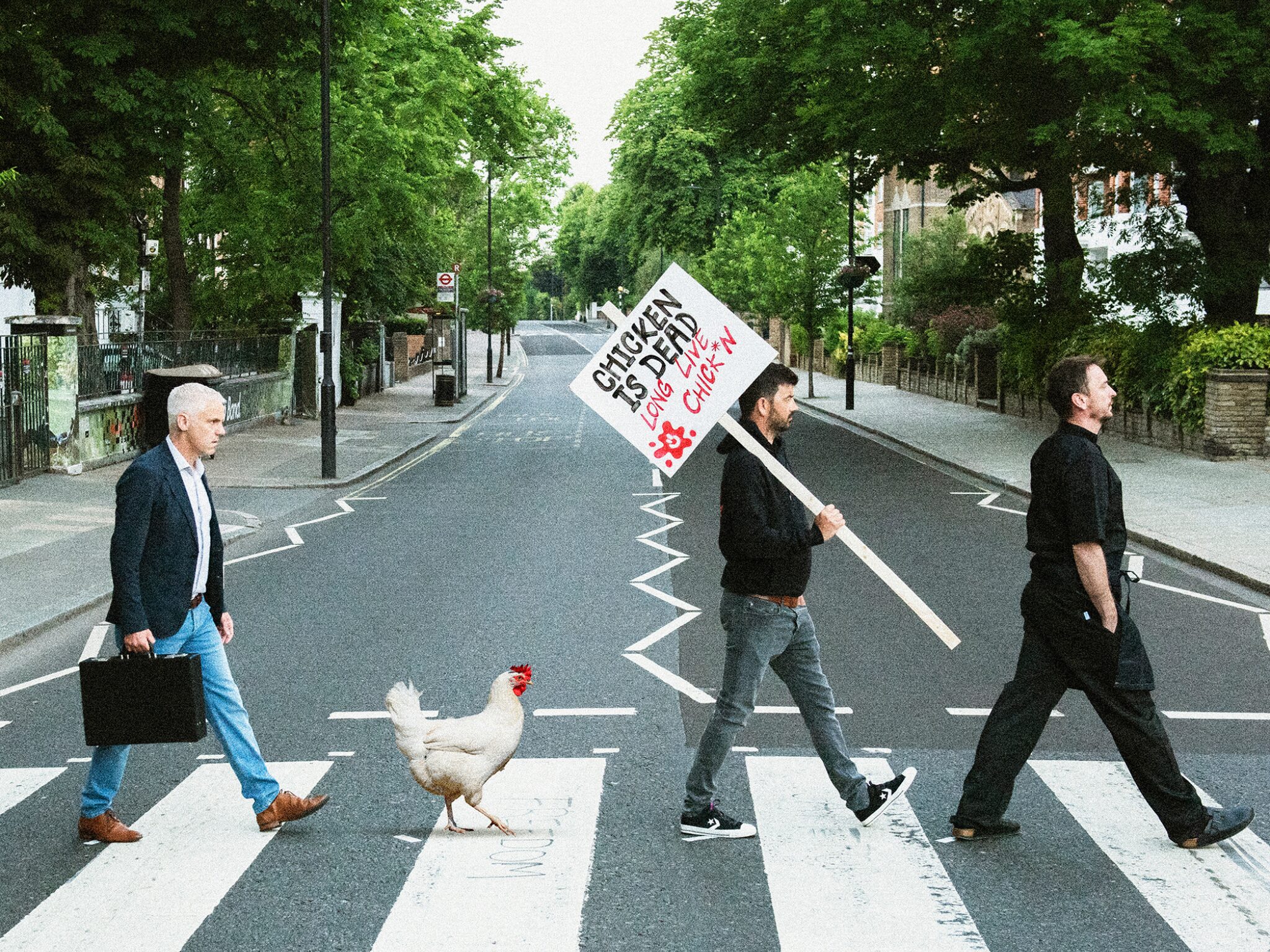13 Mins Read
Matthew Glover, co-founder of the Vegan Food Group, speaks to Green Queen about the decision behind acquiring its portfolio companies, the ambition to become a “vegan Unilever”, the challenging period for the sector, and the need for a plant-based checkoff programme.
“I know… it’s a bit of an ambiguous title,” admits Matthew Glover, chief mission officer of the Vegan Food Group (VFG), the new company that evolved from plant-based chicken startup VFC Foods.
Glover co-founded VFC with Adam Lyons in 2020, replete with wacky marketing, undercover chicken farm investigations, and – if sales are a barometer – a finger-lickin’ good product. The brand grew exponentially last year, with sales value up by nearly 200%, but things turned in a different direction halfway through.
Fellow plant-based meat maker Meatless Farm was on the brink of collapse – and VFC swooped in to purchase its UK operations and revive its market presence. Months later, it acquired pie company Clive’s Purely Plants. And in January came the grand reveal. VFC was now VFG, a holding company that has rapidly become a leader in the vegan sector. Just yesterday, VFG announced the acquisition of 35-year-old German tofu manufacturer Tofutown, an indicator of its wider European ambitions.
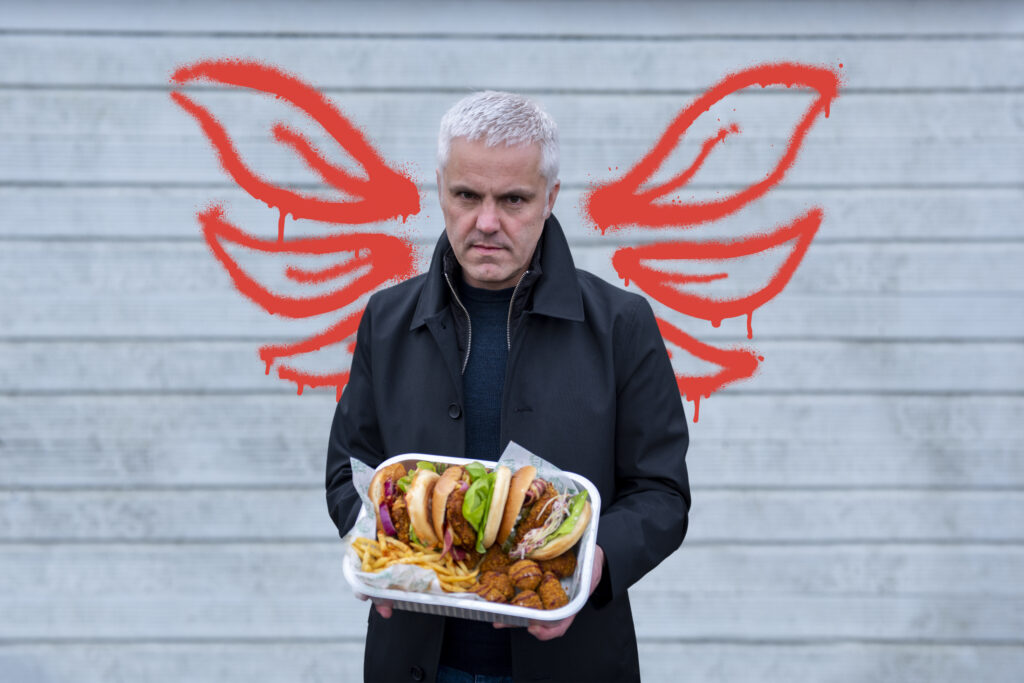
“I’d like to say this was always the masterplan,” Glover tells me. “But the reality is that circumstances came into play. VFC was making good progress, but like many startups, the progress wasn’t as fast as we’d hoped or expected.” The competition was fierce, the demand was levelling off, and the team sensed that businesses in this space would need to be proactive if they were to survive.
“When we heard that Meatless Farm might be going out of business, we saw synergies with what we were doing, and felt the brand was too good to fail,” he recalls. The rescue of Meatless Farm is when the idea of VFG began to take shape. When the rebrand materialised last month, Glover stepped into the more active role of chief mission officer.
“When Adam and I set up VFC, my motivation was removing animals from the supply chain, and Adam wanted the world to taste better. We were both very focused on the ethical imperative,” he says, explaining his new position. “The way I see it is: I’m here to keep the original values of the business front of mind as we grow and bring on more brands.”
Why the Vegan Food Group acquired the brands in its portfolio
So VFG made its first two acquisitions before officially being formed, and now is a company that houses four businesses with over 80 SKUs in more than 21,000 distribution points across the UK and the EU. Reflecting on the Meatless Farm deal, Glover says VFC was an admirer of the brand and product range: “There’d been so much invested over the years in marketing and product development that it seemed such a shame for the movement to lose such a big name.”
He credits the progress made by the team, led by founder Morten Toft Bech (who exited the company after the sale), in terms of listings in major retailers and foodservice. Crucially, consumers liked the products. Moreover, the product range of chilled beef and pork analogues was complementary to VFC’s frozen vegan chicken. “By not cannibalising our VFC range we knew we could make our proposition stronger,” says Glover.
Meatless Farm was also local to VFC, with both businesses hailing from Yorkshire, and the latter’s head of innovation previously worked at the former. “When the business instructed an administrator, we decided to take a look. The staff had all been laid off, and we knew that customers were being let down as the company had run out of cash,” notes Glover.
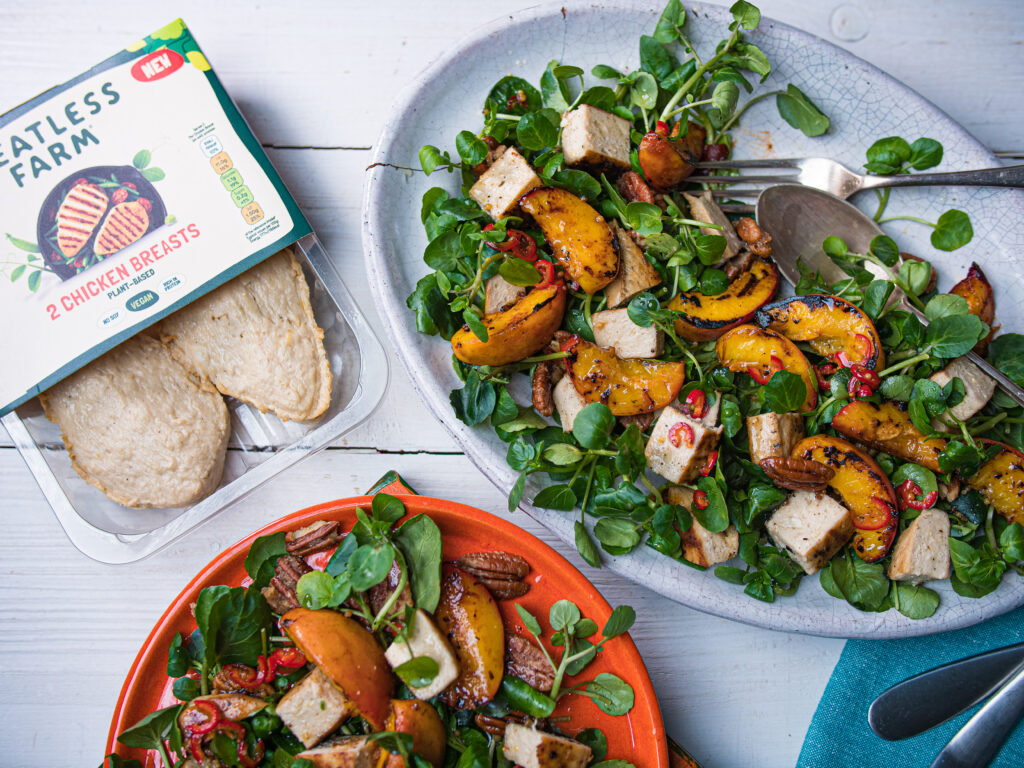
“We knew it was going to be a huge challenge to get the supply chain back up and running, but suppliers and customers were generally very receptive in those early days and we gradually managed to get things moving again,” he adds. Meatless Farm returned to UK retail in September, three months after the takeover. “I had little involvement in the rebuild, and the VFC team led by [CEO] Dave Sparrow put in all the hard work.”
The acquisition of Clive’s Purely Plants was a different state of affairs, however, given that it wasn’t in a distressed situation. Glover’s investment firm Veg Capital had bought 90% of the business in 2021, with Clive’s managing director Esther Pearson staying on at the helm. “She’d helped steer the company from a local supplier of organic pies in health food stores, to gaining national listings with Waitrose and Ocado, whilst moving to a larger manufacturing site in Dartmouth, Devon,” says Glover.
“As Veg Capital is also the major investor in VFG, we began to see how having Clive’s as part of the group would make sense for both parties. VFG would have direct access to manufacturing, and a veg-led brand as part of the portfolio, whilst Clive’s would have access to the support of the wider VFG team and resources, and benefit from the additional sales and marketing,” he explains.
“The integration is still ongoing, but the signs are good that Clive’s will play a leading role as part of VFG’s future development.” (Pearson remains a shareholder in Clive’s.)
The cross-Europe move for Tofutown
In the works for a while, the Tofutown takeover was a major move, giving VFC access to its two manufacturing sites sprawling a combined 55,000 sq m, and a gateway into further European expansion. “There’s a number of reasons why we saw Tofutown as an attractive addition to the Vegan Food Group,” says Glover. “The fact that Germany is the biggest market for plant-based food in Europe was top of the list, providing so many opportunities to expand.”
He adds: “The business also has an existing senior management team in place with an enthusiasm to grow and learn as part of a wider group structure. We’re very excited about how we can merge the start-up culture of VFC and Meatless Farm, with the established nature of a food company where manufacturing and delivering high-quality food is second nature.”
While VFG is unable to disclose the acquisition sums, Glover did highlight the value of employees of the acquired brands. “It is indeed our priority to retain the workforce whenever possible. We believe that the success of our acquisitions is significantly enhanced by the contributions of these individuals, and we are keen on integrating them into our team, fostering a culture of growth, innovation, and mutual respect,” he states.
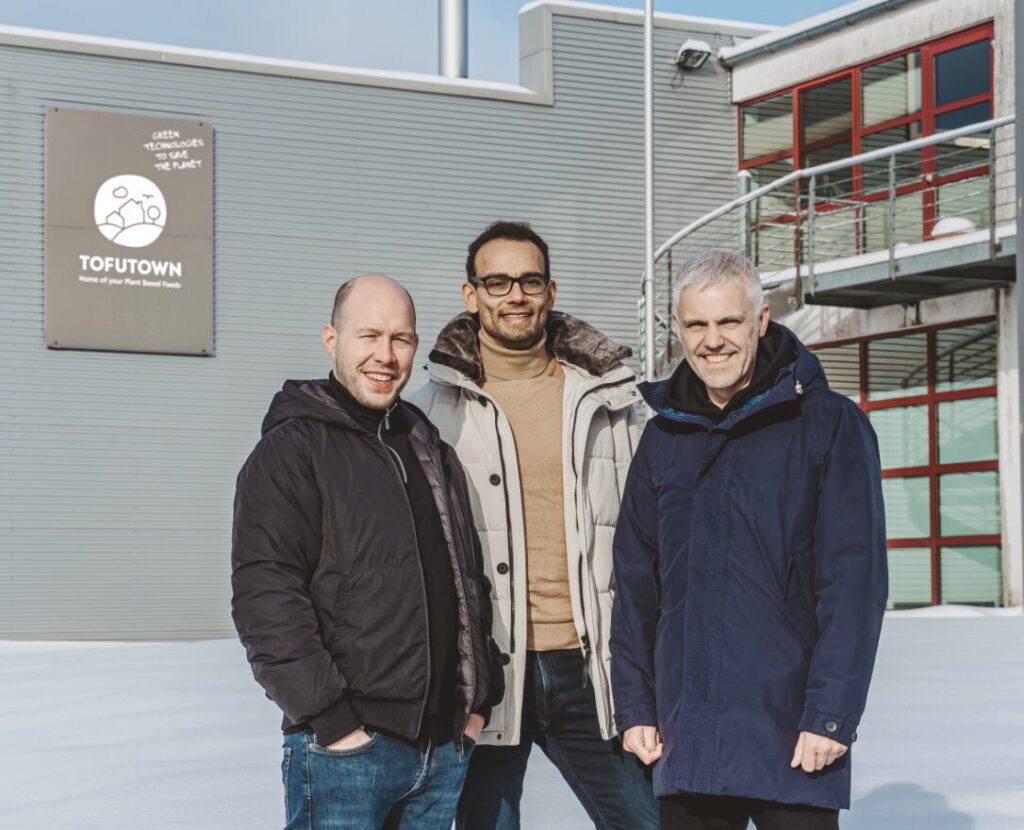
With a diverse portfolio of brands, could we see a blend of the different offerings in new product launches? “We’ll be looking at a variety of ways to enhance the brands, and co-branding opportunities could be a possibility. We’re particularly excited about expanding the Meatless Farm and VFC brands into Germany, and then using our base there to expand into other EU countries,” confirms Glover. (Tofutown products will soon be available in the UK as part of the deal too.)
“As Tofutown is known for natural, organic, clean-label product ranges, then we’ll be looking at ways to leverage this expertise and create new SKUs, which could be private label, branded as VFC, Meatless Farm, Clive’s, or we may even bring new brands to market,” he adds. “The beauty of having significant manufacturing capacity and expertise is we can listen to our customers and create the products that consumers are buying.”
Turning VFG into ‘a vegan Unilever’
VFG made a significant statement upon launch, setting its sights on becoming “a vegan Unilever”. “Our strategy is to establish VFG as a leader within the plant-based food sector, where customers, suppliers and industry leaders look to us for what’s coming next,” explains Glover.
“We’ll be offering a much wider range of options to customers, so they don’t need to deal with so many smaller suppliers,” he says. “Operationally, there are efficiencies and better buying power we can leverage, whilst providing our teams with a more diversified portfolio of brands to manage. There’s likely to be flexibility with some brands managed in-house (like VFC and Meatless Farm), with other brands being stand-alone subsidiaries.”
VFG aims to become profitable this year, with a goal of collecting €100M in revenue. Unilever, meanwhile, turned over nearly €60B last year, with its nutrition and ice cream divisions alone bringing in €21M. Becoming a vegan Unilever is a lofty ambition – does Glover fear it could almost become an albatross?
“Only if we fail, but we’ve no intention of failing,” he says. “We believe we have a very good strategy and a team that can develop our model into a large plant-based CPG company. We’ve got strong financial backing from mission-aligned investors who are keen to support us on this journey. The early signs are good, but I’ll reflect on your question in a couple of years and let you know!”
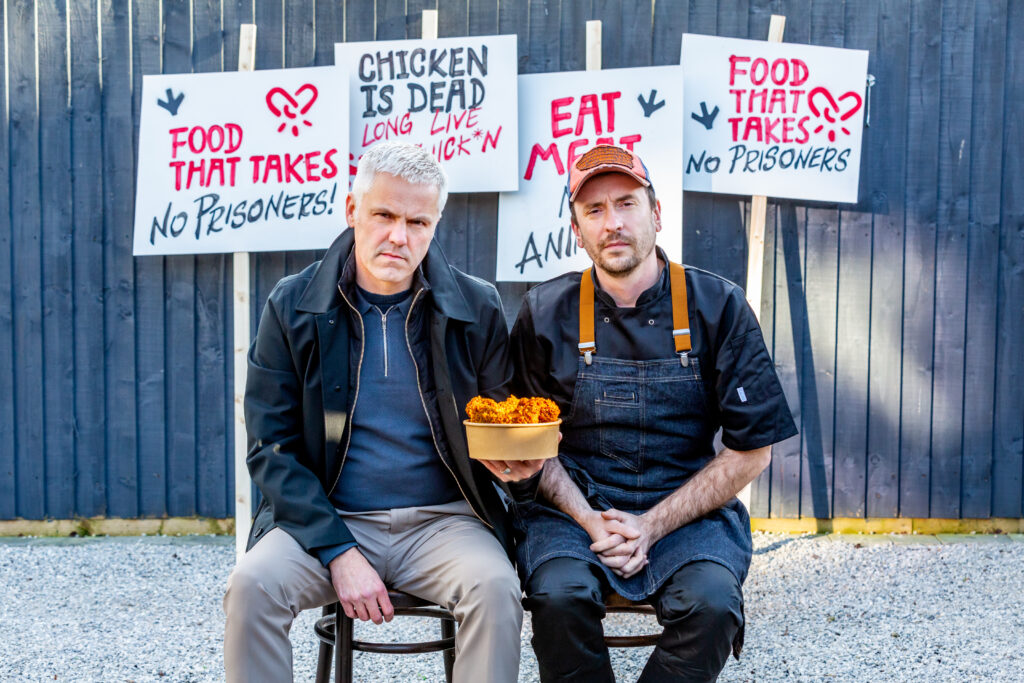
When laying out this goal initially, Glover had said: “Imagine a ‘vegan Unilever’, but with the majority of future profits being donated to effective animal charities and diet change initiatives – that’s what we’re creating at the Vegan Food Group.” This is where his role as chief mission officer comes in. “As we grow the team both organically and through M&A, we’re bringing on staff who don’t necessarily have the activism background or know about all the impacts of animal agriculture. I see my role as making sure we don’t lose sight of why we’re doing this as a company,” he explains.
VFG is majority-owned by Veg Capital, which is committed to donating 100% of its profits from its stake to effective animal charities. “We see our work as a virtuous circle, working on both the supply and demand side of the equation,” notes Glover.
“We expect to be profitable in 2024 if all goes to plan, with consistent profits feeding through over the coming years. As the group will be focused on fast-track growth (either organically or through acquisition), then we’ll likely be reinvesting profits back into the organisation for the next few years,” he adds. “The most likely time that we’ll be able to fulfil our charitable ambition is after an exit event, but there’s a lot of work to do before we get there.”
Glover will additionally assume the role of group chair at VFG, which will see him support Sparrow and the leadership team to navigate the M&A opportunities and advise on the organic growth of its existing brands.
A vegan checkoff programme to support plant-based meat
Alternative protein as a whole suffered from dwindling sales and waning consumer interest globally last year. In the UK, meat-free products were among the worst-performing grocery categories last year, with sales declining by £38.4m, and volumes down by 4.2%.
“We can’t hide away from the fact that plant-based meat categories have been in decline over the past year, or two,” says Glover, before pointing out that the British downturn isn’t as severe as it has been in the US. “There’s a multitude of factors at play, including the cost-of-living crisis, meat industry misinformation campaigns successfully turning consumers away, as well as products not meeting expectations. Retailers reducing shelf space hasn’t helped.”
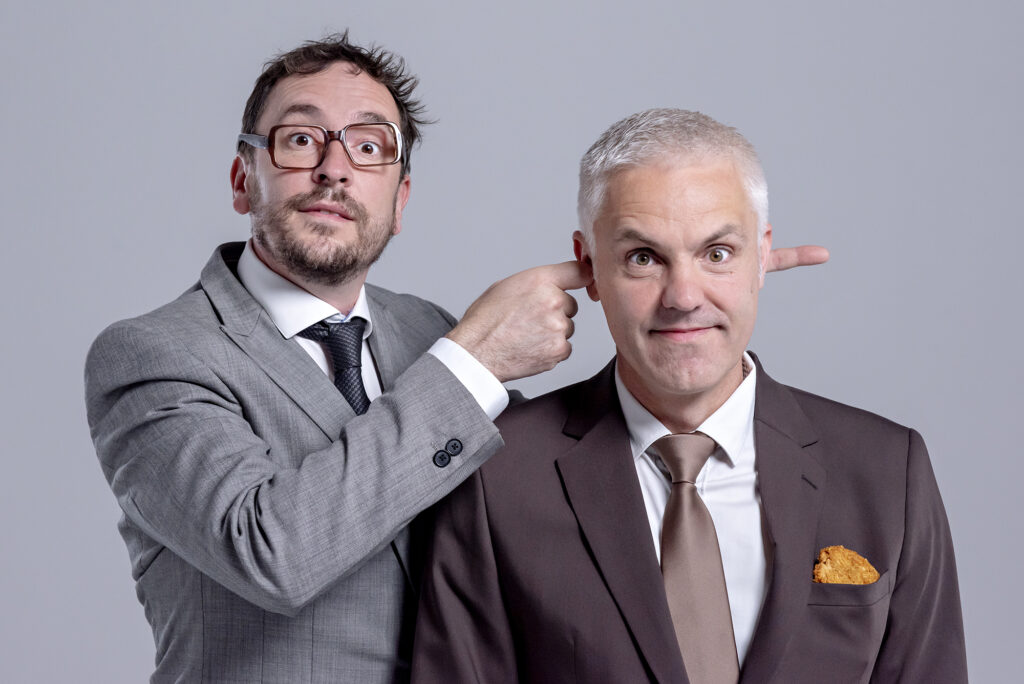
There has been a disconnect with consumers too, many of whom perceive plant-based meat to be unhealthy because they’re ultra-processed foods (UPFs), despite experts suggesting that not all UPFs – which are a mark of processing, not nutrition – are bad for you. “The meat industry has been adept at sowing seeds of doubt about the processed nature of meat alternatives and the healthfulness of plant-based diets, contributing to consumer scepticism,” says Glover. And government support for these systems doesn’t help.
In the US and the UK, meat and dairy industries collect government-backed funds from livestock producers to help fund promotional campaigns that encourage the consumption of these foods. These schemes, called levies in the UK and checkoff programmes in the US, enable the animal agriculture industry to “develop large multi-million-pound category campaigns” transmitted nationwide. With plant-based companies facing tough times, promoting the category to the public “with all its benefits is one way to get businesses moving again”.
In line with that notion, Glover is working with Indy Kaur, founder of vegan consultancy firm Plant Futures, on the plant-based industry’s own checkoff programme. “We are looking to level up with this, consolidate funding and create a campaign which can fairly compete and give consumers a reason to choose to eat plants and not animals,” he outlines.
The project will take “best practices from the meat and dairy industry”. Glover – who is also the co-founder of Veganuary – cites the Agriculture and Horticulture Development Board’s anti-Veganuary drive last month, as well as the US Milk Processor Education Program’s ultra-successful Got Milk? campaign as “proven models driving demand” for meat and dairy. “We’ll be doing the same, with plants,” he says.
For the majority of its funding, the vegan checkoff project aims to raise at least £3M from donors and investors, which would be supplemented with businesses’ marketing spend, though Glover acknowledges that these budgets are tight. “We are starting with a UK pilot, a test-and-learn methodology and potentially starting in the north where we know meat consumption is disproportionally higher than the south. Backed with a fast follow, [we’ll go] nationwide around Q3 with US rollout soon after,” he says.

“We’re going big because we have to. We’re aiming for all plant-based protein businesses in the UK and US to sign up, whether they can financially contribute or not. We are speaking to a lot of businesses and expect to have spoken to most in the plant-based protein space by the end of Q1/start of Q2,” adds Glover.
He notes that this will also help “take the burden off the shoulders of young businesses who need support” in the current climate. “There’s no holding Indy back, and she’s working with the smartest minds and a global network of advisors – it’s impressive,” he says. “We all know the future market potential for plant-based remains huge and this checkoff is designed to unlock this. We’re in it together, and that’s exactly how we are designing [the] checkoff from day one.”
Giving consumers what they want
Going back to VFG, which has teased more acquisitions in the near future, I ask Glover about the profile of the businesses it wants to take over. “There’s no target number of brands to acquire. Instead, we’ll look at every opportunity on merit and decide whether the brand or manufacturing site adds value, whilst not cannibalising our current range,” he explains. “We’ll focus primarily on frozen and chilled meal occasions where we already have expertise and relationships with buyers and suppliers.
“Ideally, we’re looking at companies which are already established, have gained decent distribution and have a run rate in excess of €3M,” he says, adding: “And the products have got to be good.”
That last point is crucial. A 1,000-person survey last year found that 66% of Brits are unhappy with the taste of plant-based meat, and 62% find them too expensive. For 51%, taste and texture are the main reasons for reducing their alt-meat consumption, but on the flip side, 39% are eating these products because of their flavour and texture. Attitudes around health were also mixed.
Does Glover know what people really want? “Oh gosh, I wish I had the definitive answer, as it’d make it far easier to scale VFG if we knew exactly how to appeal to the broadest range of consumers,” he responds. “Unfortunately, we’re navigating a nuanced interplay of factors.
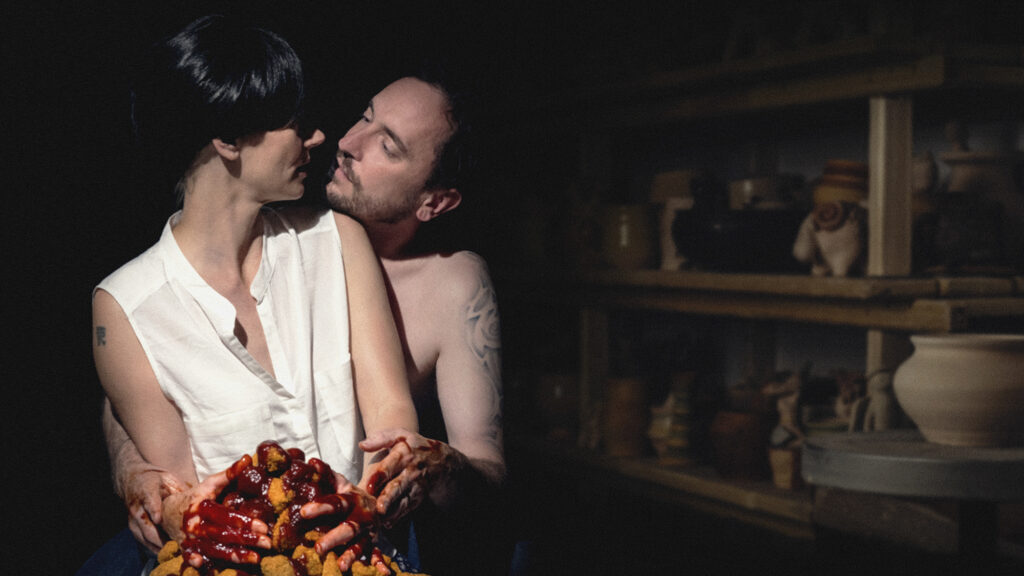
“Taste and texture often stand at the forefront; people choose plant-based options that don’t compromise on the sensory experience traditionally associated with animal products. However, achieving this without the additional price tag remains a challenge for the sector,” he explains. This is significant, as the price gap will always deter the budget-conscious.
“Health considerations are also a driving force, with many turning to vegan options for a diet seen as cleaner and more beneficial. But there’s been a meat industry-sponsored backlash in the media, which has discouraged some consumers,” he says, referring to the aforementioned misinformation campaigns.
“Beyond these immediate concerns, broader issues play into consumer decisions. Environmental sustainability and ethical considerations are increasingly influencing purchasing behaviours,” suggests Glover. “Convenience, too, cannot be overlooked, with the demand for easy, quick-preparation vegan options rising.”
Additionally, there are some cultural and informational challenges as well. Over half of Brits want more information about plant-based meat, with occasional and former frequent eaters most likely to want more details. “Our societies have been centred around meat consumption for thousands of years, supported by over a century of targeted advertising by the meat industry. This deep-rooted history creates a significant barrier to changing dietary habits overnight,” he says.
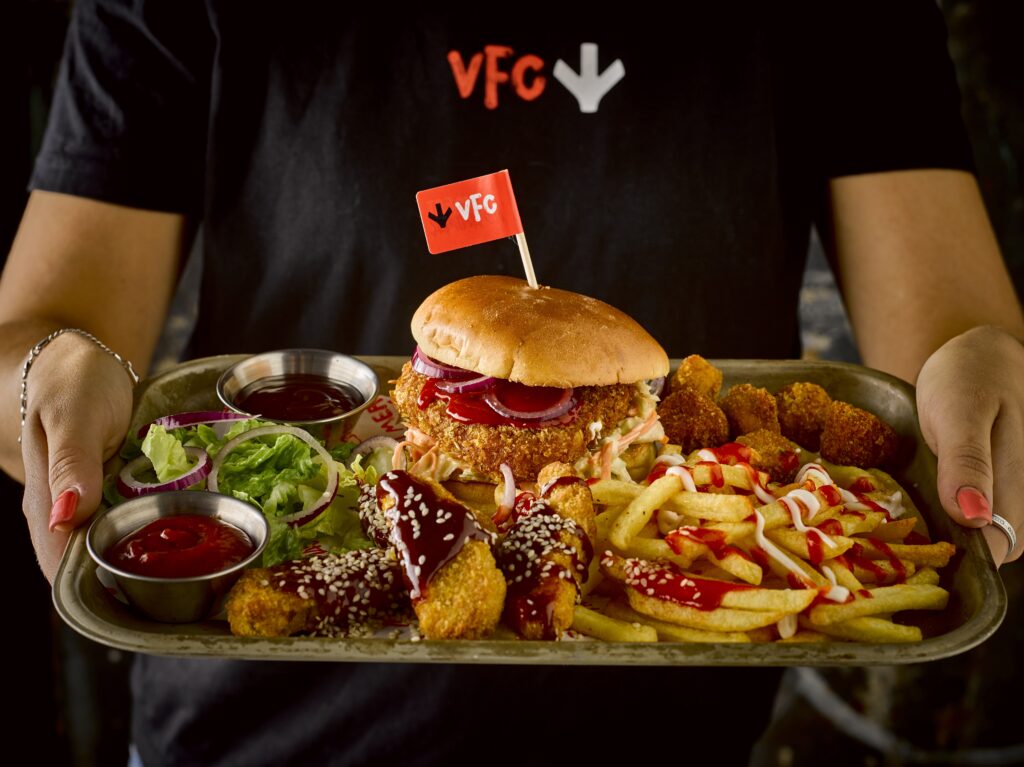
This is why winning back consumer trust and shifting dietary dynamics are complex tasks that “will undoubtedly take time”. It would mean improving products’ functionality and prices, as well as involving transparent communication to combat misinformation. “As we move forward, understanding and addressing these multifaceted consumer needs and concerns will be crucial for the growth and acceptance of vegan food in the broader market,” says Glover.
He believes it will still be a tough year for plant-based companies. “I can’t see growth being back to the double-digit figures we had previously, and a lot of companies are running on empty financially,” he explains. However, the VFG co-founder says the economic climate generally seems to be improving”, and signals that the “declines are reducing”, with advocacy campaigns like the checkoff programme aimed at reengaging consumers. “I think we’ll be cheering the news that the categories will be back in growth during this year.”

